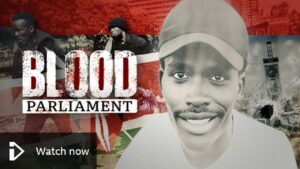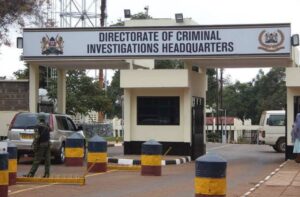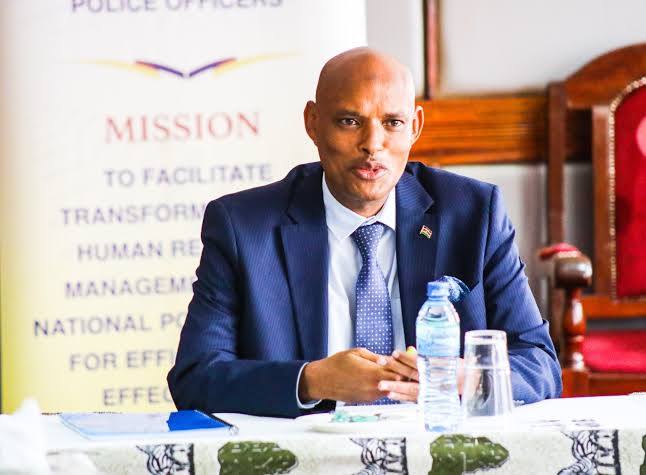The Directorate of Criminal Investigations has summoned the Mukuru Community Justice Centre to appear at its headquarters on Kiambu Road in Nairobi. This happened as a fresh crackdown began, believed to be linked to the controversial BBC documentary titled Blood Parliament. The Mukuru group confirmed the summons through an official statement and said their top leadership had been asked to appear physically at the DCI offices by 11 am. No official reason was given in the letter, which has raised concerns and suspicion online about the government’s true intentions.
According to a report by Kenyans.co.ke, the Mukuru Community Justice Centre has long been active in exposing injustices in Nairobi’s informal settlements. Recently, they were involved in raising alarm over mutilated bodies found in the Kware area of Pipeline, Embakasi.

Blood Parliament (screenshot from BBC website [Photo: Screenshot from bbc.co.uk]
In the past, members of the group worked as citizen journalists under the SemaUkweliKenya program and offered support during the Gen Z protests in 2024, making them likely targets for surveillance or intimidation.
The BBC documentary, Blood Parliament, drew international attention for its hard-hitting coverage of police brutality and killings that took place during the June 2024 anti-Finance Bill protests. The film is believed to have included footage and interviews from within affected communities, possibly involving Mukuru-based activists.
This has now sparked fears that the Kenyan state could be targeting those who helped expose the truth instead of investigating the real crimes.
The situation got more tense after four filmmakers Nicholas Gichuki, Brian Adagala, MarkDenver Karubiu, and Chris Wamae were picked up by police on May 3 from their studio in Karen. They were taken to Pangani and Muthaiga police stations, where they spent the night. Their equipment, including hard drives, was confiscated. Although no charges were brought against them, their arrest raised alarm among human rights groups.

Directorate of Criminal Investigations headquarters in Nairobi. PHOTO| COURTESY
A Nairobi court later gave them anticipatory bail of Ksh10,000 and ordered the DCI not to harass them again. Their lawyer Ian Mutiso confirmed that the court had stopped any future arrests or intimidation attempts by police.
This pattern has made many Kenyans worry that investigative journalists, activists, and whistleblowers are being targeted for simply exposing wrongdoing. With the Mukuru Community Justice Centre now under pressure, more questions are being asked about whether freedom of speech and truth-telling are under threat. The summons, the recent arrests, and the lack of transparency from law enforcement have only deepened the fear that government agencies may be acting in bad faith. Many are now watching to see if this is the beginning of a wider crackdown on those who dared to speak out during Kenya’s most painful protests in recent history.



